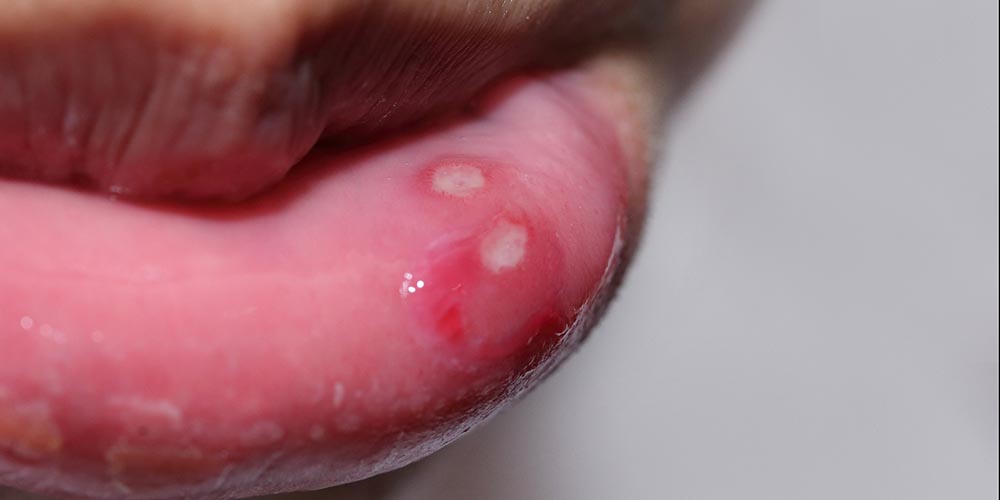Quick Answer: There is no cure or vaccine for herpes as of 2025. The first week after diagnosis is often the most emotionally intense, but the virus is manageable, and you are not alone.
This Isn’t Just a Skin Thing, And It Doesn’t Always Look Like One
The first herpes outbreak rarely follows the script we expect. It’s not always “itchy blisters” or a cluster of red sores. Some people experience flu-like symptoms, fever, body aches, swollen lymph nodes, days before anything shows up on the skin. For others, the first sign is a raw patch, a tingling sensation, or a single painful lesion that looks more like a shaving cut or an ingrown hair than anything you’d see in a textbook.
I had a headache that wouldn’t quit, a burning feeling when I peed, and a tiny bump I assumed was from friction. That was it. No "blister outbreak." No dramatic eruption. Just enough weirdness to Google. And when I searched phrases like “pain when I pee after hookup” or “STD bump or pimple,” the results buried herpes below much less likely possibilities. UTIs, yeast infections, razor burn, I read every alternative before I finally booked a test out of pure paranoia.
Turns out, I wasn’t alone. According to the CDC, about 90% of people with genital herpes don’t know they have it. That’s not because it’s rare, it’s because it’s subtle, and stigma makes people delay testing. Your body might be screaming “something’s off,” but if you don’t know what to look for, it’s easy to miss.
“But It’s 2025, How Is There Still No Cure?”
It’s a fair question. We have a vaccine for HPV. We have antivirals that make HIV nearly undetectable. We’re curing Hepatitis C. So why, after decades of research, do we still not have a herpes vaccine?
The answer is maddeningly layered. Scientifically, herpes is a sneaky virus. It hides in your nerve ganglia, little outposts deep in your body, where it can avoid your immune system and re-emerge later. That’s part of what makes it so hard to target with a vaccine or a permanent cure. Herpes isn’t just a virus; it’s a master of disguise.
But let's be honest: stigma is also a big part of it. Researchers at Yale Medical School looked at the problem in 2023 and found that the shame and misinformation surrounding herpes make it hard to get funding and volunteers for vaccine trials. Drug companies don't want to take a chance on finding a cure for a disease that most people are too ashamed to admit they have. It's not just about science; it's also about the economics of shame.
Meanwhile, those of us who are newly diagnosed sit in that gap, between what should be possible and what society refuses to prioritize. And we’re left trying to figure out what the hell to do next.

People are also reading: STD Symptoms in Pregnancy, When Spotting & Fatigue Don’t Feel Right
“I Didn’t Even Know I Was At Risk”
Ty, 27, thought herpes was something only “promiscuous people” got. He had been dating someone new for about a month and had no visible symptoms before the outbreak hit. A single sore appeared on the underside of his penis and he assumed it was a friction burn. It wasn’t.
“The clinic told me I had HSV-2 and I literally said, ‘That’s the bad one, right?’ I was sweating. I didn’t know what to do. I felt gross. Like I had failed some sexual test I didn’t know I was taking.”
Ty’s reaction is painfully common. In a peer-reviewed study on herpes-related psychological distress, researchers found that stigma often hits harder than the physical symptoms. People equated diagnosis with moral failure, loss of future intimacy, and permanent damage to self-worth.
It took Ty months to realize that herpes doesn’t define his health, his value, or his desirability. And it took him weeks just to tell his ex. “I wasn’t scared of the conversation, I was ashamed. And that’s different. Shame makes you hide. It makes you disappear.”
This is why the first week after diagnosis can be so disorienting. You're not just dealing with symptoms, you're untangling years of sex-ed failure, social messaging, and the terrifying question: “Will anyone want me now?”
Herpes Isn’t “Gross”, It’s Just Common, Boring, and Manageable
Let’s set this straight right now: herpes is not a punishment. It’s not a red flag, a sign you’re irresponsible, or evidence that you’ve done something wrong. It’s a virus that spreads easily, often when people don’t even know they’re contagious. In fact, the CDC reports that nearly 1 in 6 people aged 14 to 49 in the U.S. has genital herpes. That number jumps even higher for oral herpes (HSV-1), which most people pick up in childhood or through kissing.
And guess what? Condoms don’t fully protect against it. Herpes can spread through skin-to-skin contact in areas not covered by latex. You could sleep with someone who’s never had a visible outbreak. They could’ve gotten it from a previous partner who didn’t know they had it. You could be that person right now, and still be worthy of love, pleasure, and peace of mind.
Herpes is common. But the shame that surrounds it? That’s constructed. It’s not biological, it’s cultural. That shame has been reinforced by pharmaceutical marketing campaigns (looking at you, Valtrex ads), decades of abstinence-based sex ed, and silence from partners, doctors, and parents who never knew how to talk about it. Shame isn’t a symptom of herpes, it’s a side effect of bad messaging.
Why the “No Cure” Myth Hurts More Than Helps
When people hear there’s no cure for herpes, they imagine the worst. But “incurable” doesn’t mean untreatable. And it definitely doesn’t mean you’re doomed. Antiviral medications like valacyclovir (Valtrex) and acyclovir can suppress outbreaks, reduce transmission risk, and make living with herpes a non-issue for many people. You don’t need to be flaring all the time. You don’t need to suffer in silence. You need accurate information.
So let’s bust a few myths that hit hardest in the first week:
You’re not going to constantly break out. Most people have their worst outbreak first, then fewer and less severe ones over time. Some never get another.
You can have sex again. You can fall in love again. You can have kids. You don’t need to tell every person you’ve ever kissed. And no, your life is not over. It’s just changed, and maybe, for the better.
In a weird way, herpes can become a filter. It teaches you how to talk openly about health, risk, and boundaries. It forces you to ask for clarity, consent, and honesty. It strips away the illusion that sex was ever “clean” or “dirty” to begin with. It makes you real, and that’s a gift, not a scarlet letter.
Check Your STD Status in Minutes
Test at Home with RemediumGenital & Oral Herpes Test Kit

 For Men & Women
For Men & Women Results in Minutes
Results in Minutes No Lab Needed
No Lab Needed Private & Discreet
Private & DiscreetOrder Now $75.00 $98.00
For all 2 tests
Vaccine Science Isn’t Hopeless, But It’s Been Held Back
Back in 2022, researchers were buzzing about a therapeutic vaccine called RVx201, which aimed to suppress HSV-1 and HSV-2 using gene editing. In 2023, scientists at Harvard and the University of Washington began early human trials on another promising herpes vaccine. Yet here we are in 2025, and nothing is commercially available.
So what’s the holdup?
Part of it is viral complexity, herpes doesn't circulate in the bloodstream the same way viruses like HPV do. It lies dormant in the nervous system, making it harder to reach. But part of it is stigma. In a 2023 STAT News feature, researchers admitted that herpes stigma discourages trial participation, reduces funding, and leads to a lack of urgency from both governments and pharmaceutical companies.
This isn’t just frustrating, it’s dangerous. In one peer-reviewed study, up to 50% of newly diagnosed patients reported severe anxiety, relationship stress, or suicidal ideation after learning they had herpes. That kind of emotional toll isn’t just collateral damage. It’s a public health issue. And it deserves attention.
But until the science catches up, or until society decides to fund it like it matters, we need to take care of each other. That starts with compassion. With education. And with clear paths to testing and treatment.
Don’t Guess, Get Tested (Even If You’re Scared)
The hardest part isn’t usually the diagnosis, it’s the waiting. The endless Googling. The not knowing. That limbo between “maybe it’s nothing” and “what if I have herpes?” is where most of the emotional damage happens. And the truth is, testing isn’t perfect. But it’s the best step forward when something feels off, especially after a new partner or unusual symptoms.
At-home testing has come a long way. You can now discreetly test for HSV-2 (genital herpes) and HSV-1 (oral herpes) with blood-based kits that ship directly to your door, no waiting rooms, no awkward questions, no judgment.
If you’re ready to take that step, you can do it in private, on your terms. STD Rapid Test Kits offers accurate, lab-certified results from home. Knowing your status isn’t just about peace of mind. It’s about protecting yourself and your partners, emotionally and physically.
End the guessing game, know your status now.
What No One Tells You After the Clinic Visit
The doctor gave me a diagnosis and a printout. That was it. No emotional support, no hotline, no “Here’s how to tell someone you love.” I walked out feeling radioactive. I didn’t go back to work for three days. I didn’t answer texts. I didn’t even want to touch myself, I felt like I didn’t own my body anymore. That’s what herpes does in the beginning. Not to your skin, but to your sense of self.
And here's what I wish I'd known then: the silence after diagnosis is the real danger. When you leave that clinic or close that email with your results, the next few days are when shame tries to build a home in your brain. But it doesn’t have to stay there. Talk to someone. Anyone. A friend, a therapist, a support group. There’s even a Reddit thread with thousands of posts titled “Just Diagnosed With Herpes”, people begging not to feel alone. You are not alone.

People are also looking for: Chlamydia Without Penetration? Yep, It Happened to Me.
How to Tell Someone You’re Seeing
If you're dating, hooking up, or even in a long-term relationship, disclosure feels like a minefield. Do you tell them before the first kiss? The first sleepover? The next time you see them?
There’s no one answer. But here’s what worked for me: tell them before they could be exposed, but not before they know who you are. Herpes isn’t a warning label. It’s a part of your health, not your whole identity. Frame it that way. Keep it simple. “Hey, I wanted to talk to you about something. I have genital herpes, it’s really common, and I take medication to prevent outbreaks and lower the risk of passing it on. I’d be happy to answer any questions. I care about being honest with you.”
Most people will take their cue from your tone. If you treat it like a calm, responsible fact, they’re less likely to spiral. And if they do react poorly? That’s not a reflection on you, it’s a reflection of how deeply herpes stigma has rooted itself into public consciousness. Your job isn’t to erase their fear. Your job is to show up with truth, and let them decide what to do with it.
Some will ghost. Some won’t. But you’ll have protected them, and yourself, and that’s something to be proud of.
Yes, You Can Still Have Sex, Really Good Sex
This is the part no one tells you: sex doesn’t stop after herpes. In fact, it often gets better. Why? Because you’re forced to start talking, about protection, preferences, communication, boundaries. You become the kind of person who doesn't assume, who checks in, who shares their body with awareness. That’s not the end of your sex life. That’s the beginning of a much better one.
You can use condoms. You can take daily suppressive meds. You can track your symptoms and avoid sex during an outbreak. These things reduce transmission risk dramatically, by over 50% with meds alone, according to multiple clinical studies. Combine those with open communication, and you’re doing more than many “STD-free” couples who never test at all.
Sex with herpes is still sex. It’s still sweaty and silly and satisfying. You just have to clear out the mental clutter first, the shame, the fear, the “what if I hurt them?”, so you can actually enjoy it again. That takes time. But it’s possible. I’ve lived it.
Case Study: “We Made a Plan Together”
Ellie, 31, was terrified to tell her partner. They’d been seeing each other for three months when she got diagnosed. She assumed it would end things immediately. Instead, he asked her to send over a few links so he could learn more. Then he offered to go get tested with her again, just in case.
“He didn’t freak out. He just wanted facts. I was so ready to be dumped, I had to recalibrate what it meant to be seen.”
They started using condoms more consistently. Ellie started taking daily antivirals. They checked in before sex. Nothing about their relationship suffered. If anything, it deepened.
This is what’s possible when herpes stops being a secret and starts being part of your story. Not the headline, just one paragraph in a much bigger, more interesting book.
Check Your STD Status in Minutes
Test at Home with RemediumOral Herpes Test Kit

 For Men & Women
For Men & Women Results in Minutes
Results in Minutes No Lab Needed
No Lab Needed Private & Discreet
Private & DiscreetOrder Now $33.99 $49.00
Support Isn’t Optional, It’s a Lifeline
Whether you’re someone who journals, meditates, cries in the shower, or screams into a pillow, know this: herpes affects your mental health, not just your genitals. In one clinical study, mood swings were found to precede outbreaks by up to 10 days. That’s not coincidence, it’s evidence. Your emotional state and your physical symptoms are connected.
That means managing herpes is about more than meds. It’s about community. Therapy. Pleasure. Boundaries. Support groups. Learning to date again. Learning to feel again. Learning that the people who love you will not leave you just because of one diagnosis.
Start by talking to yourself differently. You’re not infected. You’re not dirty. You’re not broken. You have a virus that 500 million people worldwide also have. And you’re going to be okay.
FAQs
1. I just got diagnosed with herpes. Am I screwed forever?
Not even close. Right now, it feels like the end of the world, but it’s not. You’re in the hardest part: the shock zone. Give it a week. Take some deep breaths. And know that literally millions of people are living full, hot, connected lives with this virus. You’re allowed to be upset. Just don’t build a house in that feeling.
2. What does herpes feel like?
It depends. The first outbreak can feel like you’re getting the flu, fever, aches, fatigue, and then bam: sores, burning when you pee, or a weird patch of skin that stings. Some people get just one tiny bump and think it’s a razor nick. Some get nothing at all. The virus is annoying like that.
3. Can I give this to someone even if I don’t have symptoms?
Yeah. That’s what makes herpes such a stealthy little bastard. It can shed even when you feel totally fine. That’s why meds, condoms, and honesty matter, not because you're a threat, but because you're being thoughtful.
4. Do I have to tell my future partners?
Yep. If you’re going to have sex, they deserve to know. But that doesn’t mean you need to dump your trauma on them over appetizers. You can keep it chill, calm, and confident: “Hey, just so you know, I have genital herpes. It’s common and I take meds for it. Happy to talk more or share links if you’re curious.”
5. Will I ever have good sex again?
Oh, baby, yes. Sometimes even better sex. Herpes makes you communicate. It makes you slow down. It makes you talk about what you want and what you’re not cool with. That’s foreplay as far as I’m concerned. And no, you don’t have to wear a full-body condom forever. Suppressive therapy + communication = game-changer.
6. Why is there no vaccine yet? What are they doing?
Scientists are trying, but herpes is slippery. It hides in your nerves, out of reach. Combine that with stigma, low funding, and pharma disinterest, and you’ve got a recipe for scientific neglect. There have been promising trials, but nothing commercially available, yet. You deserve better. We all do.
7. How do I stop spiraling?
Step one: stop doomscrolling Reddit at 2AM. Step two: find a support group, a therapist, or just someone you can be messy with. Journaling helps. So does hearing someone else say, “Me too.” And if your brain keeps looping, remember: the stigma is louder than the symptoms. Your life is not over. It’s just evolving.
8. Can I have a baby with herpes?
Totally. Lots of people do. If you’re pregnant, tell your doctor early, they’ll monitor you and possibly recommend meds to reduce transmission during birth. But herpes doesn’t mess with fertility. You can still start a family if that’s your path.
9. Should I tell my exes?
You don’t have to report back to every person you’ve kissed. But if you had recent sexual contact before your diagnosis, it’s kind to let them know. Even just a text like, “Hey, wanted you to be aware, I tested positive for HSV-2. You might want to check in with your provider.” No need for a TED Talk. Just clarity.
10. Where can I get tested discreetly?
Right here, actually. STD Rapid Test Kits lets you test from home, no judgment, no waiting room, just answers. Whether you’re worried about herpes or another STI, clarity is care. You deserve to know.
You Deserve Answers, Not Assumptions
If you’ve just been diagnosed with herpes, it’s okay to feel like your world just tilted. It’s also okay to stop googling worst-case scenarios. You are not the exception. You are not the only one. And this diagnosis is not your whole story, it’s just a plot twist. One that might teach you more about consent, care, honesty, and your own damn strength than anything else.
Don’t wait and wonder, get the clarity you deserve. This at-home combo test kit checks for the most common STDs discreetly and quickly.
Sources
1. Yale – Herpes Stigma and Vaccine Development
2. STAT News – Herpes Advocates Demand Action
3. PubMed – Psychological Impact of Herpes
4. PubMed – Mood Preceding HSV Outbreaks
5. NCSD – Herpes: From Shame to Empowerment
6. Verywell Health – Depression After Diagnosis
7. Planned Parenthood – Living with Herpes
8. Herpes UK – How Herpes Got Its Stigma










